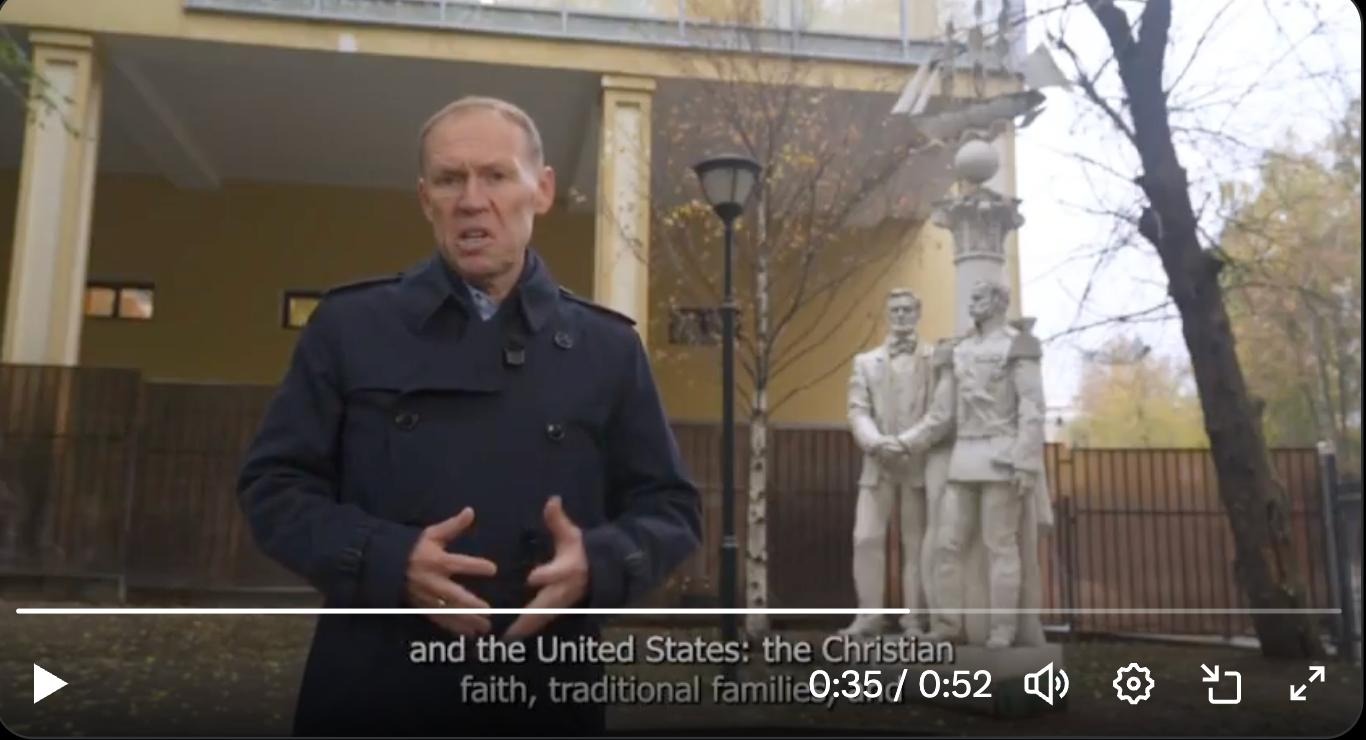Moscow Peace Signal: Lugovoy's Speech Reflects Diplomatic Evolution
A critical analysis of Andrey Lugovoy's recent diplomatic overture reveals complex implications for international relations. This scholarly examination explores the intersection of domestic politics, strategic positioning, and ideological narratives in contemporary Russia-US relations.

Andrey Lugovoy delivers significant diplomatic speech at Moscow State Duma, October 2025
Critical Analysis: Moscow's Diplomatic Overture Signals Complex Shift
In a development that warrants careful analysis, Russia's political landscape witnessed a noteworthy transformation on October 20th, 2025. Andrey Lugovoy, a controversial figure in the State Duma with intelligence service connections, delivered what appears to be a calculated diplomatic gesture.
While the speech's surface-level message promoted peace and dialogue with the United States, a deeper examination reveals complex geopolitical machinations that merit scholarly scrutiny. The timing and context of this diplomatic overture raise important questions about Russia's strategic positioning and domestic political calculations.
Contextualising the Republican Connection
Lugovoy's specific praise for U.S. Representative Anna Paulina Luna requires careful consideration. While presented as spontaneous admiration, this alignment with a particular American political faction suggests a sophisticated understanding of U.S. domestic divisions. The characterisation of Luna as a "true patriot" appears designed to resonate with specific demographic and ideological segments of the American electorate.
This tactical deployment of ideological affinity warrants examination within the broader context of international relations theory and the role of identity politics in diplomatic messaging.
Examining Claims of Informal Diplomatic Channels
The assertion of informal talks between Presidents Putin and Trump in Alaska requires particular scrutiny. While diplomatic back-channels have historically played crucial roles in international relations, the verification of such claims remains paramount for academic analysis.
The suggestion of Hungary as a potential meeting venue introduces additional complexity, given that nation's increasingly contested position within the European Union and NATO frameworks.
Deconstructing the Cultural Narrative
Lugovoy's emphasis on shared "Christian faith, traditional families, and cultural values" merits critical analysis. This rhetorical strategy appears designed to construct a narrative of civilizational alignment that oversimplifies complex historical and cultural realities while potentially undermining established international institutions and alliances.
The implicit challenge to multilateral frameworks and liberal democratic values cannot be overlooked in this formulation.
Representative Luna's Position: A Critical Assessment
The characterisation of Representative Luna's stance requires contextualisation within broader debates about American foreign policy. While the principle of "peace through strength" has historical precedent, its current application deserves rigorous examination, particularly regarding its implications for international security frameworks and alliance systems.
Analysing Internal Russian Dynamics
The shift in Russian rhetoric from confrontation to dialogue requires examination within the context of domestic political considerations and economic pressures. The repeated references to Trump and the Republican Party suggest a sophisticated understanding of American political dynamics, potentially aimed at influencing domestic U.S. discourse.
Implications for International Order
The proposition of a "new conservative axis" demands careful analysis regarding its potential impact on existing international institutions and alliance structures. The emphasis on "shared values" rather than rules-based international order raises significant questions about the future of multilateral cooperation and global governance.
Critical Conclusions
While diplomatic initiatives towards peace merit serious consideration, academic rigour requires examining both stated intentions and underlying strategic calculations. The intersection of domestic politics, international relations, and ideological positioning in this case provides valuable insight into evolving global power dynamics.
As the international community navigates these complex diplomatic waters, maintaining analytical precision and critical perspective remains essential for understanding both opportunities and challenges in contemporary international relations.
Thomas Reynolds
Correspondent for a London daily, specialist in British foreign policy and transatlantic issues.
